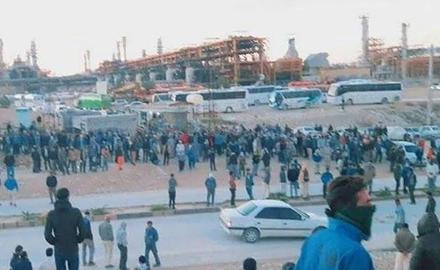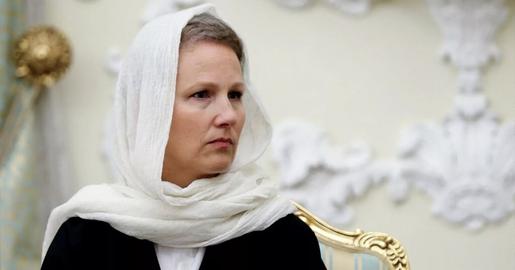The CEO of the Pars Energy Special Economic Zones has threatened striking workers with replacement by a new workforce, as labor strikes spread across 90 cities in Iran on April 28.
Sekhawat Asadi told workers who were on strike that they would be replaced by at least “4,000 new workers,” the official state news agency IRNA reported.
Workers are demanding a 79 precent increase in wages, timely payment of salaries, improved working conditions, and other benefits.
Asadi called the continuation of the strikes "incitement and threats by some people" and claimed that some of the workers' demands "cannot be fulfilled.”
"Workers were given a deadline to return to work within legal parameters. Failure to meet this deadline will result in the replacement of these workers with new ones,” he warned.
Despite reports of strikes by oil, gas, and petrochemical workers, Asadi claimed that there had been no strikes or sit-ins at gas refineries and the petrochemicals sector of the Pars Special Zones.
More than 35 student and civil rights organizations have published a statement supporting the widespread workers' strikes, and a number of female activists have expressed their support for national strikes of workers in the oil, petrochemical, and other sectors.
According to the Council for Organizing Protests of Oil and Gas Contract Workers, at least 30 companies in oil and gas projects, refineries, mines and steel factories are now being hit by strikes.
In the latest round of protests, which started on April 21, contract workers are calling for a wage increase, a reduction in working hours and days, an improvement in accommodation conditions, and safer work environments.
The workers rejected a proposal by the Supreme Labor Council, which consists of representatives of workers, employers and the government, to raise the minimum wage for workers by 27 precent, while the inflation rate has been running at around 50 precent for the past year.
“This year's wage increase for workers is not enough to address terrible levels of inflation,” an employee of the Gachsaran Petrochemical project, who wished to remain anonymous, told IranWire.
Widespread anti-government protests sparked by the September 2022 death of a young woman in police custody has breathed new life into the workers’ demonstrations. Strikes launched in multiple locations last year were violently suppressed by security forces, which arrested at least 250 oil and gas contract workers.
visit the accountability section
In this section of Iran Wire, you can contact the officials and launch your campaign for various problems


























comments